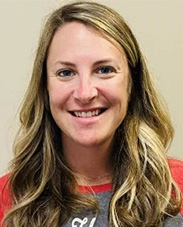

Feb 22 2022
Picky Eater or Food Aversion?


Summary
Eating may seem simple, but for some children it can be a challenge.
As a parent, do you dread mealtime?
Are you forcing or bribing your child to eat?
Is she a “picky” eater?
Does he cry during mealtime?
If you answered yes to any of these questions, your child may suffer from a feeding disorder.
Eating is Complex
Feeding is one of the most important skills we learn. Although it may seem simple, for some it can be challenging. Eating is a complex process and requires all systems in the body to cooperate and coordinate together.
Some children who suffer from a feeding disorder have complex medical conditions, whereas for others it can attribute to sensory and/or behavioral factors. Whatever the case, it is important to seek appropriate treatment for feeding challenges.
Food Aversions
Food aversions and swallowing disorders can start as early as infancy. Infants with normal oral motor skills and swallowing functions can have food aversions, but most food aversions and swallowing disorders are seen in children with medical disorders such as prematurity, heart disease, pulmonary disease, gastroesophageal reflux disease (GERD), delayed gastric emptying, neurological disorders and oral motor impairments.
Signs of a Feeding Disorder
- Weak suck (the bottle/pacifier will fall out of his mouth if you let go)
- Long feedings (taking more than 20-30 minutes to finish a bottle)
- Reduced lip seal
- Fatigue (gets tired only after a few sucks)
- Coughing during feedings
- Crying
- Arching his back during or after feeds
Infants may also exhibit:
- Poor weight gain
- Aspiration
- Sleep problems
- Drooling
- Oral defensiveness (not wanting anything to touch their mouth)
- Poor coordination
- Failure to thrive
A speech-language pathologist can determine how to help your child overcome these deficits. The same techniques do not work for every child, so it is important to have a thorough evaluation to determine what will work best.
Many children carry food aversions and/or swallowing disorders into their childhood years. Children are “picky eaters” because they go through stages of fearing food. As they get older, that fear of new foods begins to improve and they begin to select a variety of different foods.
A child with sensory challenges often limits the foods he will eat because of sensory experiences in the past that were painful. Some eat as few as three or four different foods which have similar traits, such as being the same color, being easy to chew or having a similar texture.
Aversive Reactions
Aversive reactions to foods they do not like include:
- Spitting
- Negative facial expressions
- Gagging
Sensory deficits can lead to behavioral responses such as:
- Screaming
- Crying
- Throwing food
- Vomiting to avoid eating
Help Your Child
- Create a routine. Start by making a meal/snack schedule. He does not need to graze; he needs a meal or snack every 2-2.5 hours. If he likes to graze, start with 1-1.5 hours between meals.
- Do not let your child walk around with a sipper cup all day so he won’t fill up on liquids.
- Start with a verbal warning (“We’re going to eat in 10 minutes”).
- When it is time to eat, ask him to wash his hands and fix his plate.
- Include foods from three different food groups at each meal.
- Put at least one non-preferred/new food on his plate or in front of him, and whether he eats it or not, leave it there.
- Research shows it takes up to 20 presentations of a new food before a child will try it. When he tries it, praise him verbally or by blowing bubbles or reading a page in a favorite book.
- Encourage your child to play with his food and get messy. Do not wipe his face while eating.
- Before he finishes, have him interact with the non-preferred food—smell it, touch it, kiss it, lick it and eventually put it in his mouth.
- After eating, have him wash his hands and clean his face.
If you suspect a swallowing/feeding disorder, ask your pediatrician for referral to a speech-language pathologist or occupational therapist.


Sara Gammill, MS, CCC-SLP
Sara Gammill, MS, CCC-SLP, is a speech-language pathologist with NMMC’s Outpatient Rehabilitation Center, which is part of the Neuroscience Institute at Longtown Medical Park. Sara earned her bachelor’s degree in speech-language pathology from Mississippi University for Women in Columbus and her master’s degree in communication sciences and disorders from the University of Mississippi in Oxford. She enjoys working with children who have swallowing and feeding disorders.
When illness or injury make doing the things you love difficult, North Mississippi Medical Center can help. Discover the power and possibilities of rehabilitation.

Subscribe to Our Newsletter
Like this content and want to get more? Sign up for True North, the health and wellness newsletter from North Mississippi Health Services!

Subscribe to Our Newsletter
Like this content and want to get more? Sign up for True North, the health and wellness newsletter from North Mississippi Health Services!

Nurse Link®
Call 1-800-882-6274 anytime to speak directly to a registered nurse and get immediate answers. Using computerized medical protocols, nurses direct callers to the most appropriate medical treatment. Our nurses are available 24 hours per day, seven days per week.